When Barcelona called: The deferred dream that shaped Gideon Mensah’s rise
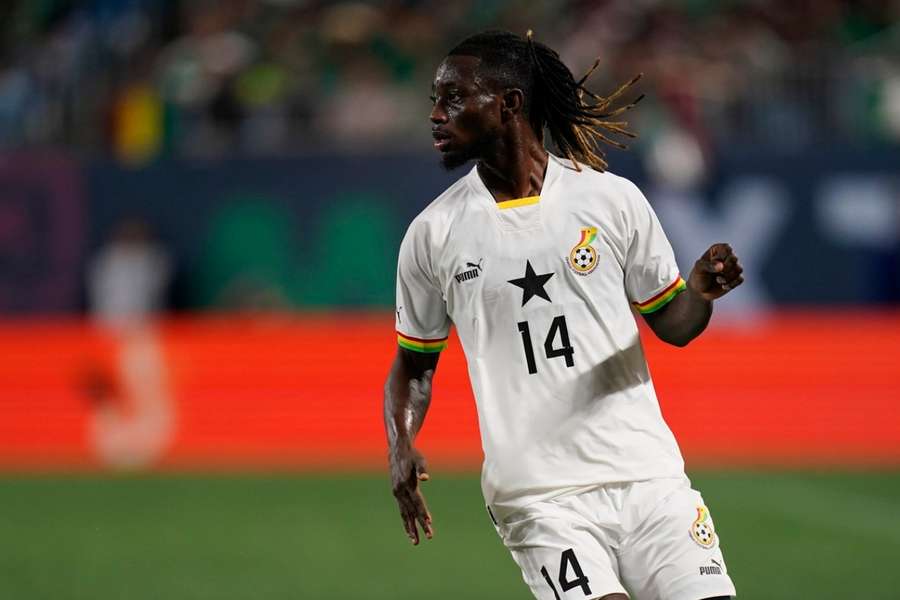
Transfers in football can make or break careers, launching some players into stardom and relegating others to obscurity. One decisive move can elevate a player to stardom, while a misstep can unravel years of hard work and dedication.
Navigating the complexities of transfers is no easy feat. Questions swirl around every decision: When is the right time to move? Which club should you choose? What coaching philosophy aligns with your development? The stakes are high, and the uncertainties can be daunting, leaving players to ponder the countless variables that could determine their futures.
It’s easy to analyse players who have made successful or disastrous moves; their stories are etched in the annals of football history. But what about those who missed out on a transfer? This grey area whispers of what could have been, of dreams unfulfilled and potential untapped.
Five years down the line, Gideon Mensah is still haunted by those whispers. At age 21, Mensah’s phone rang with what he described in an interview with Flashscore as “a once-in-a-lifetime opportunity” - Barcelona wanted him.
Suddenly, Mensah found himself on the brink of greatness, poised to become only the second Ghanaian ever to don the iconic Blaugrana jersey, following in the footsteps of Kevin-Prince Boateng.
In Ghana, supporting Barcelona is more than just football - it is a religion. Whenever Barcelona are in action, streets, match centres and pubs are painted red and blue by passionate fans - some go to the extent of celebrating memorable victories in church.
For countless young Ghanaian footballers, the ultimate dream is to play for giants like Barcelona, Real Madrid, Manchester United, Chelsea, and Liverpool.
But unlike Boateng, who finally attained the Ghanaian dream in the twilight of his career, Mensah stood at the dawn of his professional journey having played just four years, two of which were with Ghana-based talent factory West African Football Academy (WAFA).
The left-back found himself at a crossroads, caught between the appeal of joining one of the most prestigious clubs in the world as a backup and the need for regular playing time to develop.
Barcelona calling
In the heart of Austria, under the warm summer sun, Mensah's world was about to be turned upside down. Fresh from a gruelling training session with Red Bull Salzburg, he retreated to his room, unaware that his phone was about to deliver news that would send shockwaves through his career.
The call came unexpectedly, his agent's voice crackling with excitement and urgency. "Barcelona are trying to sign you," he whispered, the words hanging in the air like a tantalizing mirage.
"But it has to remain confidential." In that instant, Mensah's heart raced, his mind reeling with possibilities.
The deal, still in its infancy, hinged on Eric Abidal's return from Brazil. The Frenchman had gone to South America on a club assignment and was expected to complete Mensah’s transfer upon his return to Catalonia.
The proposal was audacious: a loan move that would see Mensah, a young Ghanaian talent, rubbing shoulders with football royalty as Jordi Alba's understudy. It was a golden ticket to the big leagues, a chance to train with Barcelona's elite while signed to their first team.
As night fell, Mensah found himself whispering into the darkness: "Is this really happening?" The opportunity seemed too surreal for a player who had just returned from a loan spell, deemed surplus to requirements at Salzburg. Yet here he was, on the cusp of joining one of the world's most prestigious clubs.
Dreams of Barcelona's sun-soaked beaches and the roar of Camp Nou left Mensah obsessing. "I couldn't resist thinking about the next flight to Spain," Mensah confessed, the allure of the Blaugrana jersey almost tangible.
But dreams can be fragile things. By morning, news of the potential transfer had circulated across Ghana's media landscape, shattering the veil of secrecy. In a cruel twist of fate, the broken confidentiality clause saw the deal evaporate as quickly as it had materialized.
“The next day I just saw the news everywhere in Ghana that Barcelona wants me. So, I called my agent and asked him what happened to not saying anything to anyone. The agent also said he doesn’t know how the news got out.”
Within 12 hours, Mensah's world had shifted from the dizzying heights of Barcelona's skyline to a state of bewilderment. As the news spread back home, Mensah grappled with the harsh reality of a dream shattered.
The aftermath saw Mensah parting ways with his agent, while Barcelona turned their attention to Junior Firpo. Yet, amidst the disappointment, a flicker of hope remained.
“Nobody knows what's going to happen in the future. The opportunity to play for Barcelona can come back again,” Mensah reflected.
The left-back signed a new agent and ended up joining Zulte Waregem on loan for the season. The interest from Barcelona was a reminder of how far Mensah had come.
A father's influence
Unlike many kids in Dunkwa, a small town in the Central Region of Ghana, Mensah didn’t have to sneak out from home to play football. His journey into the game wasn't just encouraged; it was orchestrated by a father's dream and a child's innate talent.
"Before Gideon could crawl, I had already bought a football for him to play with," William Mensah, Gideon's father, reminisced with pride. For young Mensah, the path was clear: "It was football or nothing else," he recalled.
The dusty pitches of Nimako FC became Mensah’s second home. Here, under his father's watchful eye, he honed his skills against players twice, even thrice his age. His talent was undeniable, his progress meteoric.
In a stroke of marketing genius that would make modern-day PR firms envious, William orchestrated a campaign that would cement his son's local celebrity status.
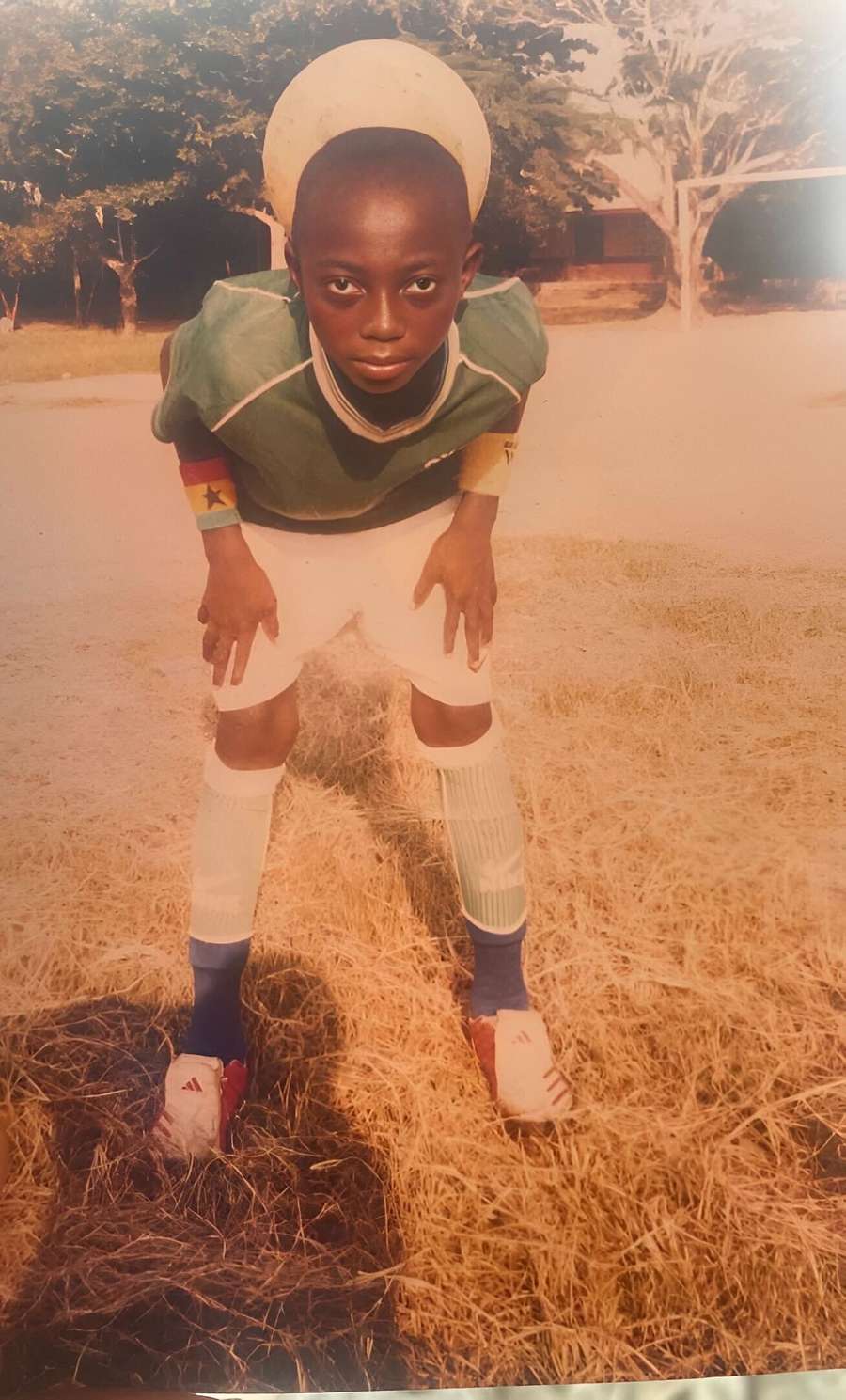
Dressed in his finest jersey and boots, young Mensah was photographed on the pitch with a ball, his image soon adorning walls across town.
"My friends kept calling me, saying they'd seen my painting in town," Mensah recollected.
At the tender age of seven, Mensah’s talent caught the eye of Coach Zac, leading to a pivotal moment that would shape his future.
With a performance beyond his years, Mensah earned his first 'professional' reward - a princely sum of 50 pesewas. "I bought gari, sugar, groundnut, and mixed it with water to eat after the game," he remembered, a testament to the humble beginnings of a future star.
Coach Zac invited Mensah, who made the 33km trip from Dunkwa to join Bafana Bafana. The journey not only tested his resolve but his mother’s faith. Her fears of losing her son to the vast world of football were alleviated by her husband's belief in Gideon's destiny.
His family constantly visited seven-year-old Mensah in Obuasi to help with his adaptation. One day, he received a call from his father, who convinced him to switch to Black Emancipation Academy which was located in Saltpond, about 180km south of Obuasi.
Like Mensah had done all his life, he listened to his father and they went for the trials. After the first training, the club president described Mensah as “too good” and didn’t want him to go back home. So William had to go back and bring Mensah’s belongings for him to stay.
“As a father, I gave him everything I had to ensure that he can play professional football one day,” William says.
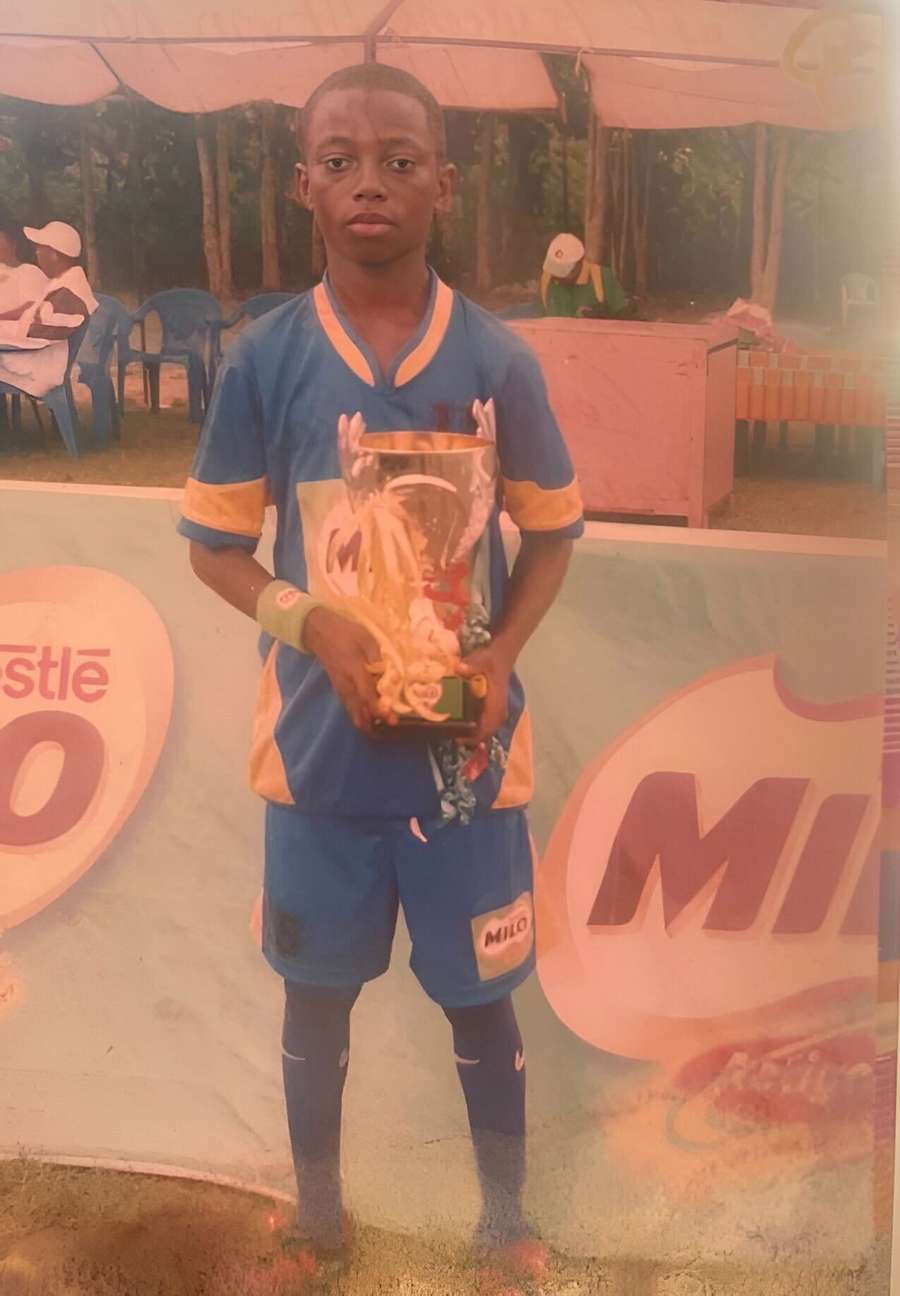
Mensah got his first shot at going professional in the 2009 Milo Games, which was the biggest scouting tournament in Ghana. Unfortunately, he failed to impress but came back a year later as the captain of the Central Region team, catching the eye of the prestigious Feyenoord Academy, later known as WAFA.
All along, Mensah was playing as either a left winger, an attacking midfielder, or a defensive midfielder. But that changed after one training session.
It was here, in a moment of quick thinking and adaptability, that Mensah found his true calling. Faced with stiff competition in midfield and attack, he made a tactical decision that would define his career.
"I realised the left-back wasn't quite good, so I decided maybe I can start from there. For me, it was about survival," Mensah explained.
Initially, Mensah’s idea was to change his position later, but as years went by in the academy, the more he enjoyed the role. Maybe it was fate as his father, though right-footed, played as a left-back during his playing days.
Inspired by the likes of Marcelo, Mensah embraced the modern full-back role, blending defensive duties with attacking flair. "Choosing him as an idol helped me a lot," Mensah reflected, acknowledging how this inspiration shaped his skilful playing style.
At WAFA, Mensah went on trials at Lille at just 13, and then played in the Ghana Premier League, as his trajectory trended ever upward. His move to Salzburg opened new doors, but it was a loan to Zulte Waregem that would prove to be the catalyst for his career's next big leap.
The national team dream
At Zulte Waregem, Mensah emerged as a rising star, playing every single minute of the season with remarkable consistency. With 19 league appearances and two crucial assists under his belt, he quickly became a standout player.
This impressive performance didn't go unnoticed; it earned him a call-up to Ghana’s U23 national team, setting the stage for his first international tournament with the Black Meteors at the U23 AFCON.
But fate had even bigger plans in store. One fateful night, Mensah’s agent delivered thrilling news: He was in contention for a spot on the senior national team. With Harrison Afful sidelined due to injury, the stars had aligned for Mensah, who was the emergency backup.
Excitement coursed through him, but he approached the news with caution, mindful of the lessons learned from his previous brush with Barcelona.
The following morning brought a pivotal decision: should he represent the U23 squad or seize the opportunity with the Black Stars? With clarity and determination, Mensah chose the senior team. “It was a straightforward decision,” he said confidently.
As he joined the camp, Mensah tempered his expectations. “I didn’t expect to start or even play,” he admitted, knowing that seasoned players like Lumor Agbenyenu were ahead of him in the pecking order.
Ghana were gearing up to face South Africa and Sao Tome in crucial Africa Cup of Nations qualifiers, and while his first training sessions went well, he felt a mix of excitement and nervousness. “Meeting players like Andre Ayew, Alfred Duncan, and Jordan Ayew was overwhelming,” he recalled.
Then, during a critical third training session, destiny intervened. Lumor suffered an injury, suddenly opening the door for Mensah. With no other natural left-back in the squad, all eyes turned to him.
Head coach Kwesi Appiah approached Mensah after practice and asked, “Are you sure you’re ready to play if I put you in?” Without hesitation, Mensah met his gaze and replied firmly, “Yeah, I am ready.”
This was the moment he had dreamed of for years - the chance to represent his country on the grand stage.
“I’ve played in front of fans at various clubs,” he reflected, “but nothing compared to playing for Ghanaians on the national team.”
That night at the team hotel, as excitement buzzed around him, Mensah retreated to his room and turned off his phone. He knew this was not the time to get lost in distractions from family and friends.
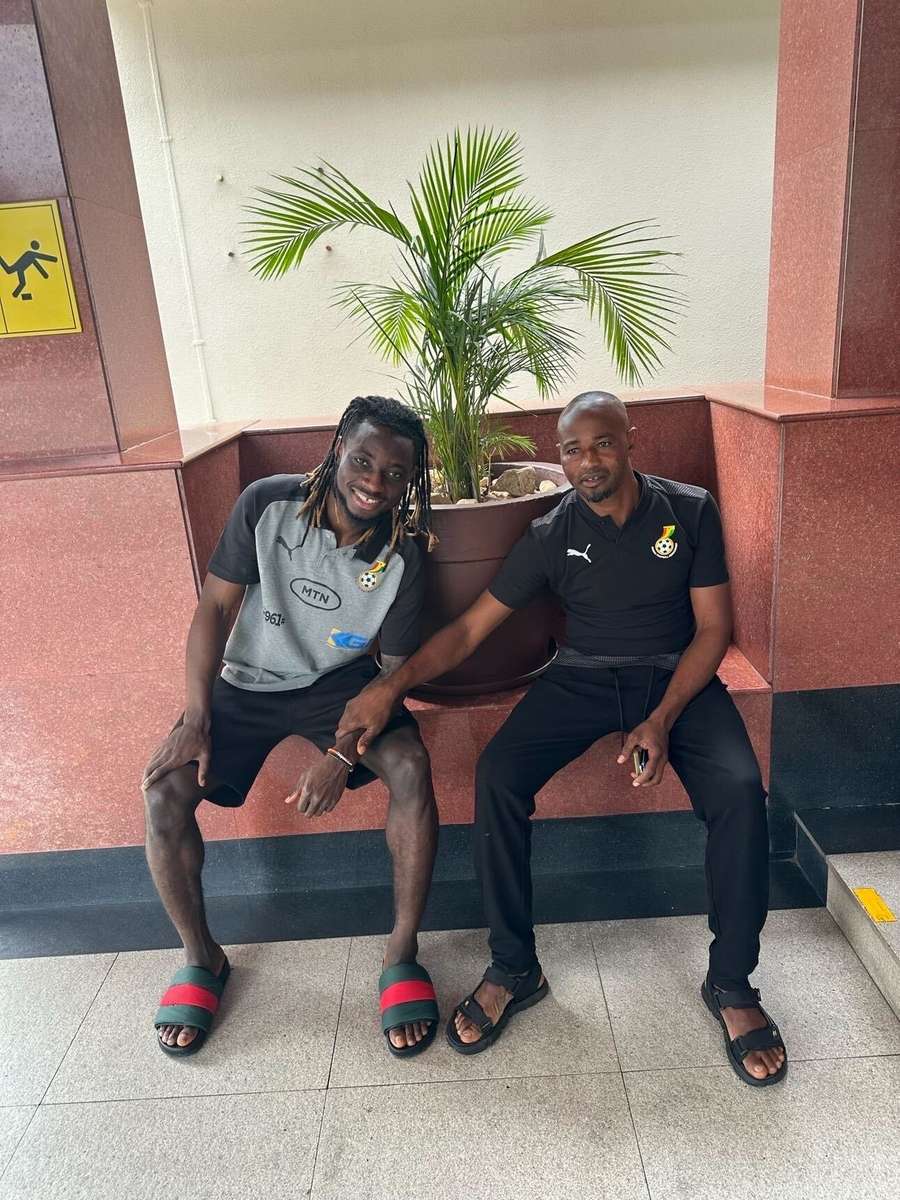
However, he had forgotten about a special visitor. His youth coach Zac from Obuasi had come for a match ticket. It took assistant coach Charles Akonnor’s gentle reminder to bring Mensah back to reality.
When he finally met Zac downstairs, cheers erupted as his former coach beamed with pride over the young talent he once trained - now poised to start his first game for the Black Stars. The news had spread like wildfire back home, adding pressure to an already momentous occasion.
“I remember those first 10 minutes being tough,” Mensah admitted. “Not because of my performance but because of the atmosphere and pressure.”
Yet as the match against South Africa unfolded, Mensah found his rhythm and settled into his role on the pitch.
He played with poise and confidence, delivering one of his best performances in national colours as Ghana secured a 2-0 victory. His journey didn’t end there; he also started in the subsequent match against Sao Tome, helping Ghana clinch another win.
Since that unforgettable debut, Mensah has gone on to earn 28 caps for the Black Stars.
The world stage
One of Mensah's most significant achievements came on the biggest stage of all - the World Cup, a moment that filled his father, William, with immense pride. “I was overjoyed when I heard the news.
"Our entire family felt fulfilled when Mensah was named in Ghana’s final 2022 World Cup squad,” he beamed.
“As a father, it’s a proud moment to hear people predicting his name as the first choice in his position.”
William had spent countless evenings with Mensah, watching the 2010 and 2014 World Cups on television, nurturing a dream that one day his son would grace such a prestigious platform. After Ghana’s disappointing absence from the 2018 tournament, the excitement was palpable when they returned four years later - with Mensah in the squad.
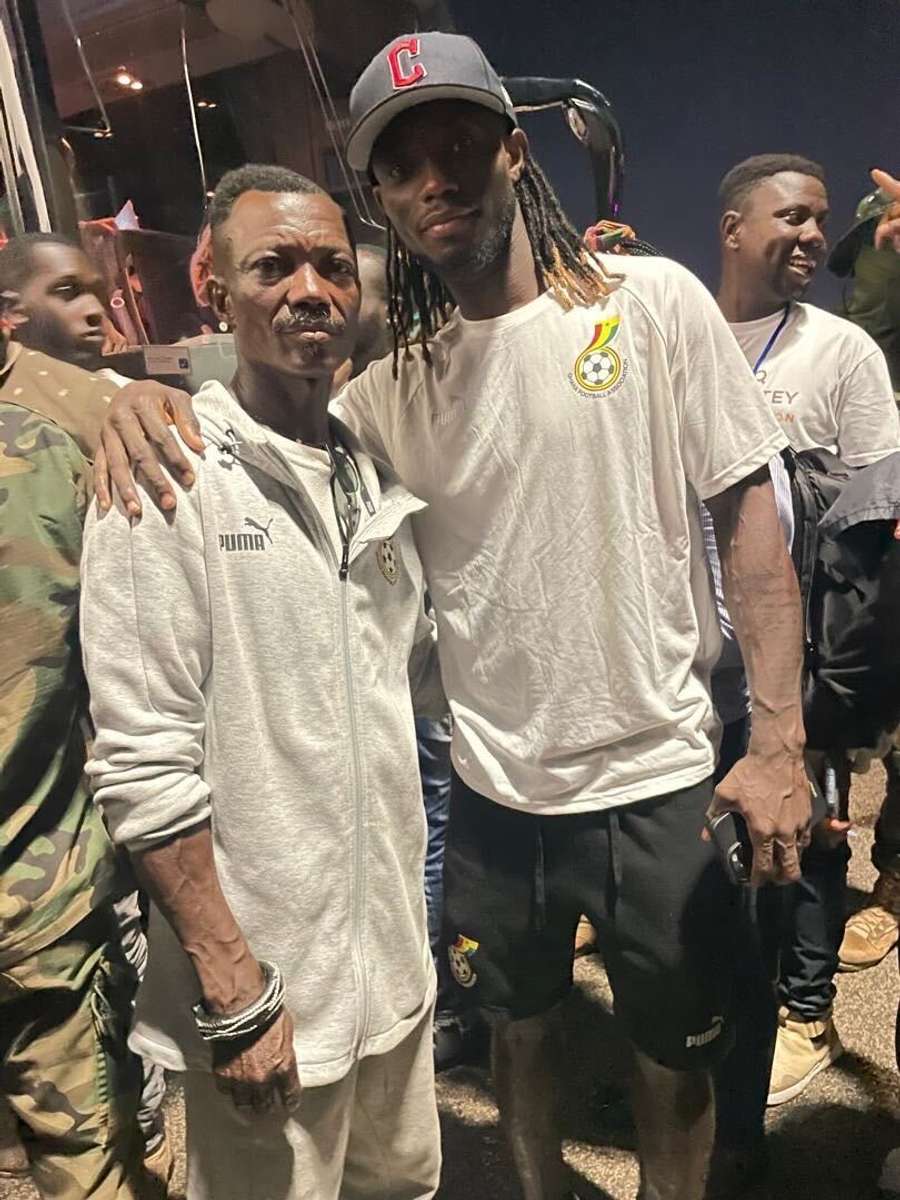
However, as the tournament approached, a shadow of doubt crept in. Despite his excitement about competing on football's biggest stage, Mensah sensed that coach Otto Addo might favour Baba Rahman, a more seasoned player. He didn’t feature in the friendly against Switzerland before the tournament and accepted his role on the bench. When Rahman started Ghana’s opening match against Portugal - a thrilling encounter that ended in a narrow 3-2 defeat - Mensah’s heart sank.
But everything changed ahead of Ghana’s crucial clash against South Korea. With elimination looming, Mensah received shocking news: he would be starting. The weight of expectation crashed down on him like a tidal wave. “Pressure” was the only word he could muster to describe the moment - a collective anticipation from fans, teammates, and the world for Ghana to secure a victory.
Overwhelmed by nerves before kick-off, Mensah found solace in a pep talk from captain Andre Ayew. “I remember during warm-ups, he came up to me, head to head,” Mensah recalled. “He said, ‘Listen, you’ve been waiting for this. This is your moment; everyone is watching you. You can’t let them down.’” Those words resonated deeply within him, helping him focus amidst the chaos.
When the whistle blew, Mensah rose to the occasion, channelling every ounce of determination into his performance. The match unfolded dramatically, and thanks to his pinpoint cross leading to Mohammed Kudus’ winning goal, Ghana emerged victorious with a thrilling 3-2 scoreline.
To Mensah, playing in the World Cup was an intoxicating rush - a dopamine high that left him craving more.
“The more you experience it, the more you want to come back,” he said with fervour.
“The World Cup was the best experience of my career, and if I have the chance to play in four editions, I will seize it without hesitation.”
Life in Auxerre
Mensah now graces the pitch in Auxerre, a charming town southeast of Paris where football is more than just a game - it's a way of life. Unlike the bustling capital, Auxerre boasts a close-knit community that rallies around its team, and for many fans, Mensah has become an integral part of the club's identity. “You can see when he came back; we play better and are starting to compete,” one devoted supporter remarked.
Back home in Dunkwa, the excitement surrounding Mensah is palpable. “Whenever Gideon plays, there’s joy across the whole town,” a local shared. “Many kids are playing football right now, dreaming of replicating his success.” His journey serves as a beacon of hope for aspiring young athletes in his hometown.
Mensah's stellar performances with Auxerre have not gone unnoticed; the club recently offered him a one-year contract extension - news that brought immense joy to his family.
“Gideon called on the Ligue 2 trophy parade day, and we were overjoyed,” his father, William, revealed. “His contract extension is fantastic news for us and for Ghana.”
With a population of just over 30,000, Auxerre may be small, but it has a rich football legacy that belies its size. The Stade Abbé-Deschamps, one of France's oldest stadiums, has witnessed unforgettable moments in history, including Ligue 1 triumphs and thrilling European nights against giants like Real Madrid.
Auxerre's recent history has been a rollercoaster ride of promotions and relegations. After a 32-year stay in the top flight ended in 2012, the club had to wait a decade to return to Ligue 1. Though they faced relegation after just one season, they are now back in Ligue 1 for the 2024-25 season, eager to reclaim their status as a mainstay in French football.
“I don't want to go back to Ligue 2 again,” Mensah asserted with determination. “The focus now is to work together as a team and help the whole club stay in Ligue 1.”
He added: “This season has been good so far; we’ve secured nine points (12 since the interview was conducted) from our home games and are working hard to earn points away.”
At just 26 years old, Mensah has achieved what many would deem unthinkable for someone from a small town like Dunkwa. His agent, Kwasi Siaw, remains optimistic about his future: “Gideon’s rise has been nothing short of inspiring. From the start, I saw immense potential, but it’s his dedication and resilience that have truly driven his success.
"I’m deeply thankful for his loyalty and trust in me to guide his career. Watching him grow and achieve his dreams has been an honour.”
Gideon Mensah’s story is a testament to the resilience born from a dream deferred. From the dusty fields of Dunkwa to the global stage, he’s carved out a legacy powered by grit, talent, and the lingering fire of what might have been. Every step he takes now isn’t just a personal victory; it’s a reminder that sometimes, the dreams that slip away are the very ones that push us hardest toward greatness.

